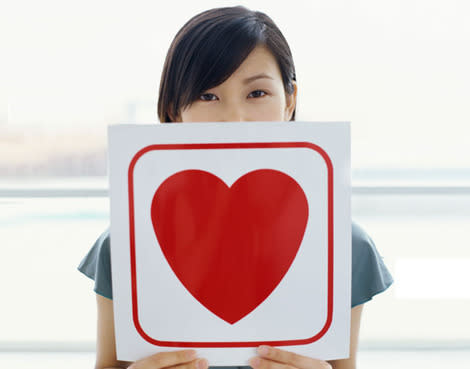7 Surprising Habits that Raise Blood Pressure

Think you're doing right by your heart, but your blood pressure still won't budge? One of these common BP-raisers could be to blame
They call it the "silent killer" - silent because it has no signs or symptoms. High blood pressure, also known as hypertension, affects one out of three adults in the US, and women are about as likely as men to develop high blood pressure during their lifetimes. "One high blood pressure reading doesn't mean you're going to have a stroke on the spot," explains Richard Shlofmitz, MD, chairman of cardiology at St Francis Hospital, The Heart Center. "But when left untreated, sustained high blood pressure can lead to just that, as well as heart attack, heart failure, and kidney damage." And your numbers don't have to be crazy-high to be dangerous: A recent review of studies that included more than 500,000 participants found that people under age 65 with slightly elevated blood pressure, or pre-hypertension, were at a significantly higher risk of stroke than people with normal readings. What's normal? Less than 120/80mm HG is a healthy reading; pre-hypertension is 120 to 139 over 80 to 89; official hypertension is 140/90 or higher.
Slash Your Heart Disease Risk 92%
If you have high blood pressure, your doctor may not be able to pinpoint the exact cause, but we do know that the older you get, the less flexible your blood vessels become and the higher your risk in general. While you can't control your age, here are seven habits you can change in order to combat your risk:
1. You order Miso soup with your sushi. It's mostly broth, it's got soy-how bad can it be, right? Well if we're talking sodium, it's horrendous: One cup contains 2,560 mg. The USDA recommends limiting sodium to 2,300 mg a day for most adults. The recommendation is cut to 1,500 mg for anyone with hypertension. That's because excess sodium causes your body to retain more fluid, increasing blood volume. Your heart then has to work harder to move more blood through the vessels, which raises pressure in your arteries. "Too much salt intake is by far the number one cause of hypertension," says Shlofmitz. The average American gets about 3,400 mg a day, mostly from processed foods like tomato sauce, soups, canned foods and prepared mixes. Table salt contributes, too-one teaspoon has more than 2,300 mg.
Shake the salt out of your diet by eating fresh fruits and vegetables, fresh meat instead of processed and cured, and looking for low-sodium on packaged food labels. Also, go easy on high-sodium condiments: just one tablespoon of soy sauce has 900 mg.
How to Shake Your Salt Habit
2. You clean your plate. It's been ingrained since you were little: Kids are starving somewhere in the world, so be thankful you have food and eat it all. Here's a good reason to resign your membership in the clean plate club: Leaving a few bites behind may help you recognize your body's "I'm full" cues, plus it's an easy way to cut calories, which can help you lose weight. That's super-important for one simple reason: Extra weight puts extra strain on your heart, which ups your blood pressure, cholesterol, and risk of heart disease. "Getting down to a healthy weight absolutely reduces your risk," says Shlofmitz-and even losing as little as five or 10 pounds makes a difference. Most people need to subtract about 500 calories per day from their diet or burn 500 calories more to lose about one pound per week, according to guidelines from the National Heart Lung and Blood Institute and the National Institutes of Health. Other easy ways to cut calories: eat slowly, portion your servings, and make smart swaps, like opting for non-fat milk instead of cream in your coffee. And what about those leftover bites? Stick them in the fridge for a snack tomorrow.
Quiz: Are You a Portion Control Pro?
3. You talk-a lot-when you walk. It's excellent that you exercise-physical activity strengthens your heart and lowers blood pressure. And walking is an excellent option-it gets your heart rate up, it's good for your lungs and circulatory system, and it helps burn extra calories. But if you can carry on a full conversation while you're walking, you're actually not working out hard enough to reap all those benefits. You need at least 30 minutes of moderate-level exercise on most days-moderate means you should be breathing too hard to sing along with your iPod or give your walking buddy the low-down on the entire last season of Bones. If you can exchange brief sentences here and there, your intensity level is likely on target.
8 Best and Worst Exercises for Your Heart
4. You end a bad day with a glass or three of wine. When you're stressed out, your pressure may rise, but that's only temporary, explains Shlofmitz. Science hasn't shown that stress in general causes high blood pressure, but how you deal with stress may actually impact your risk-maybe you eat too much (which ups your weight and risk of heart issues); maybe you smoke (which damages arteries), or maybe you drink too much wine. One drink a day is the recommended maximum for women; men get to have two. What counts as one drink is probably less than you think: 12 ounces of beer, 4 ounces of wine, or one ounce of hard liquor.
20 Heart-Healthy Comfort Food Recipes
5. You never asked mom about grandma's health. You know you have her eyes and curly hair, but you may have inherited her high blood pressure, too. Family members share genes, as well as lifestyles, behaviors and environments, which together may affect the risk of developing similar health problems. You're twice as likely to have high blood pressure if one or more close family members are diagnosed before age 60. Those odds are out of your hands, but if you know hypertension hangs from your family tree, you can take steps sooner to prevent or reduce your risk. Gather your family medical history, and store all your info online with the Surgeon General's My Family Health Portrait (https://familyhistory.hhs.gov/) - you can update it as necessary and print it to share with your doctor or other family members.
Why Your Family Health History Matters
6. You combine birth control pills with smoking. High blood pressure is up to three times more common in women taking oral contraceptives, particularly among obese and older women. Smoking on the pill is especially dangerous-it can up your risk of blood clots, heart disease and stroke. Talk to your doctor about risks and get your pressure checked before you start the pill, and then every six months after.
6 Scary Times For Your Heart
7. You don't sleep long or deep enough. Some experts say getting less than six hours a night may raise your risk of hypertension, and new research suggests restless sleep contributes too: Scientists in California found that older men who got the least deep sleep had an 80 percent higher chance of developing high blood pressure than men with the highest level of this restorative sleep. Plus, preliminary research out of Harvard showed middle-aged women who suffer from restless leg syndrome-a condition that disrupts sleep-may be at increased risk of high blood pressure. The exact relationship between sleep and blood pressure isn't clear, but good sleep helps you stay healthy in a million different ways-from reducing your risk of disease to boosting your mood, memory and immunity.
Tell us: When's the last time you had your blood pressure checked?
--By Teresa Dumain, Prevention
More from Prevention:
13 Ways to Lower Blood Pressure Naturally
5 Excuses That Kill Your Heart
15 Surprising Ways to Improve Your Cholesterol

